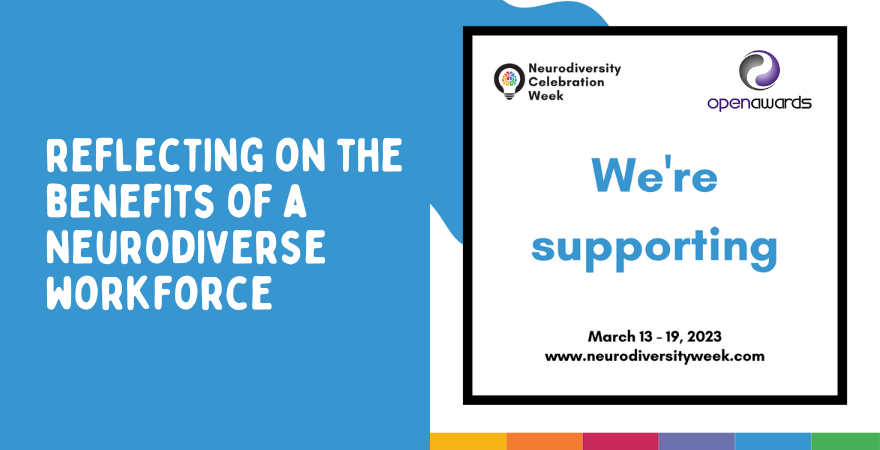
A neurodiverse workforce refers to a workforce made up of individuals with varying neurological abilities, including those with conditions such as autism, ADHD, dyslexia, and Tourette's syndrome, as examples.
During neurodiversity week 2023, we have reflected on the benefits of having a neurodiverse workforce:
- Unique perspectives and problem-solving skills: Neurodiverse individuals often think differently from neurotypical individuals and may bring unique perspectives and problem-solving skills to the table. This can lead to creative solutions to complex problems that might not have been considered otherwise.
- Increased innovation and creativity: Neurodiverse individuals often have a heightened ability to think outside of the box and may approach problems in unconventional ways. This can lead to increased innovation and creativity within an organization.
- Improved productivity and efficiency: When tasks are tailored to the strengths and abilities of neurodiverse individuals, they may be able to complete them more efficiently and accurately than neurotypical individuals. This can improve overall productivity and reduce errors.
- Enhanced workplace culture: A neurodiverse workforce can promote a more inclusive and accepting workplace culture. When neurodiverse individuals feel valued and included, they are more likely to feel comfortable sharing their unique perspectives and ideas.
- Increased employee retention: When neurodiverse individuals feel accepted and supported in the workplace, they are more likely to stay with an organization long-term. This can reduce turnover and the associated costs of hiring and training new employees.
Overall, a neurodiverse workforce can bring a range of strengths and benefits to an organisation, leading to increased innovation, productivity, and a more inclusive workplace culture.
